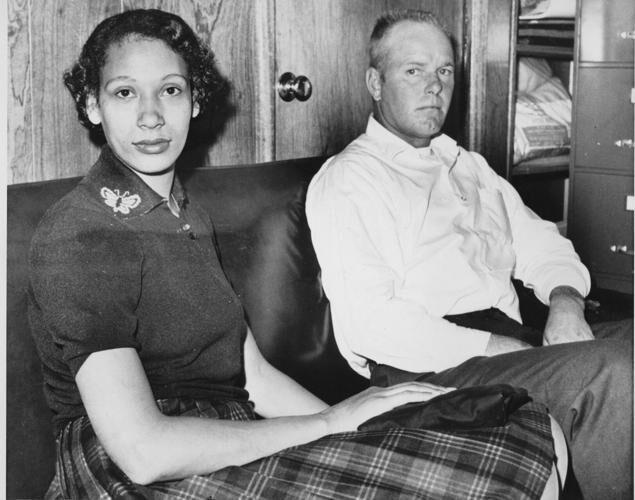Could Interracial Marriage Be on the Supreme Court’s Chopping Block?
Jamaica Live International News Desk– | Aug 16, 2025
A storm of controversy erupted when U.S. Republican Senator Mike Braun suggested that the Supreme Court should leave the question of interracial marriage to individual states. In a recent interview, Braun argued that deeply personal freedoms—such as marriage rights and access to contraception—should be decided at the state level, even if that means some states pass laws many Americans would find discriminatory.

Braun compared this to the Court’s decision to overturn Roe v. Wade, saying the U.S. is “better off having states manifest their points of view rather than homogenizing it across the country.” Pressed specifically on interracial marriage, he initially responded “Yes,” acknowledging that under his logic, states could theoretically choose to outlaw such unions.
The backlash was swift. Within hours, Braun issued a statement walking back his remarks, claiming he had “misunderstood” the question and reaffirming that racial discrimination is unconstitutional. Still, the episode reignited concerns about whether the Supreme Court could one day revisit the issue.
The Legal History
The right to interracial marriage is not new—it was firmly established more than half a century ago.
- 1967 – Loving v. Virginia: In a landmark unanimous ruling, the U.S. Supreme Court struck down all state bans on interracial marriage. The case involved Richard and Mildred Loving, a white man and a Black woman, who had been sentenced to prison in Virginia simply for marrying. The Court declared such laws unconstitutional under the 14th Amendment’s Equal Protection and Due Process Clauses. This ruling made interracial marriage legal nationwide.
- 2022 – Respect for Marriage Act (RFMA): Signed into law by President Joe Biden, the RFMA reinforced these protections by requiring all states to recognize interracial and same-sex marriages performed legally in other states. This legislative safeguard ensures that even if Loving v. Virginia were ever challenged, interracial marriages would remain protected under federal law.
Why It Matters
While few legal experts believe the Court would revisit Loving, Braun’s comments highlight how fragile certain rights can appear in a polarized climate. For many Americans, the idea that interracial marriage could again become a “state issue” is unthinkable. Yet, history shows that hard-won freedoms must often be defended again and again.
The lesson of Loving v. Virginia remains clear: marriage is a fundamental right, and equality under the law cannot be left to the shifting winds of state politics.
- Recent discussions have centered on whether the Supreme Court should have the final say on certain social issues, with some arguing that these decisions should be left to individual states.
- This discussion has prompted reflection on the implications of overturning past Supreme Court precedents, including Loving v. Virginia.
- Specifically, Justice Clarence Thomas has indicated a willingness to reconsider past rulings that established rights related to privacy and personal autonomy, including the right to interracial marriage.
- While no specific case is currently challenging Loving v. Virginia, the broader conversation about states’ rights and the limits of Supreme Court authority raises concerns about the potential for future challenges.
In summary, while interracial marriage is currently legal and protected under federal law, the possibility of future legal challenges remains a topic of discussion, particularly in the context of ongoing debates about states’ rights and the scope of Supreme Court power
